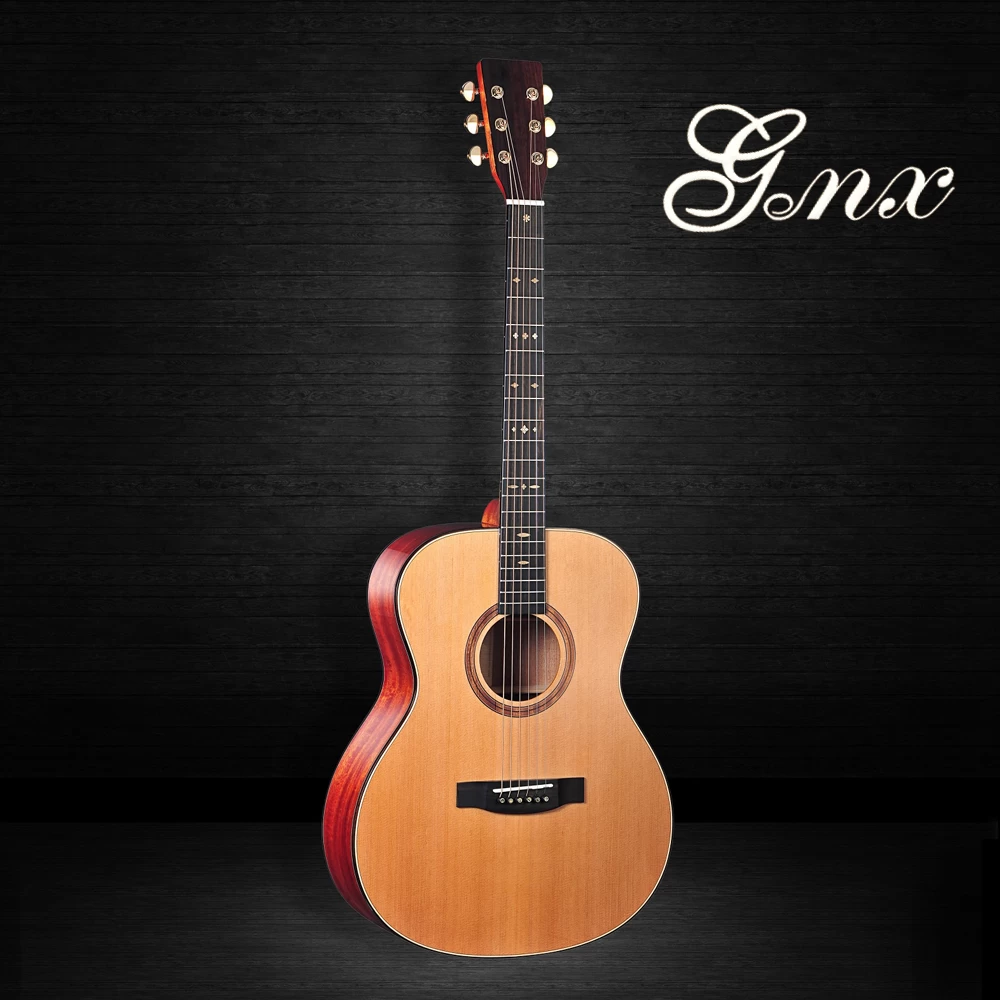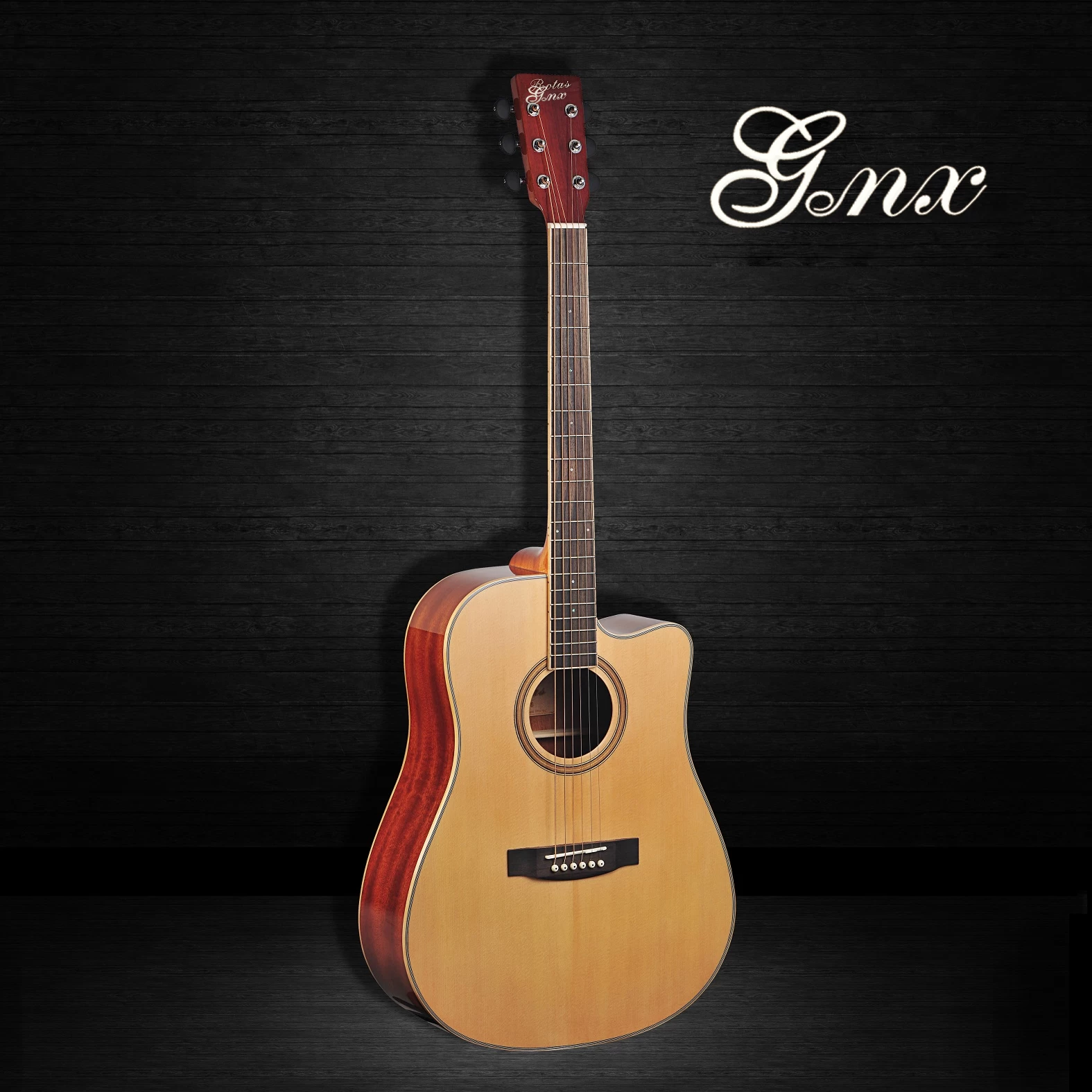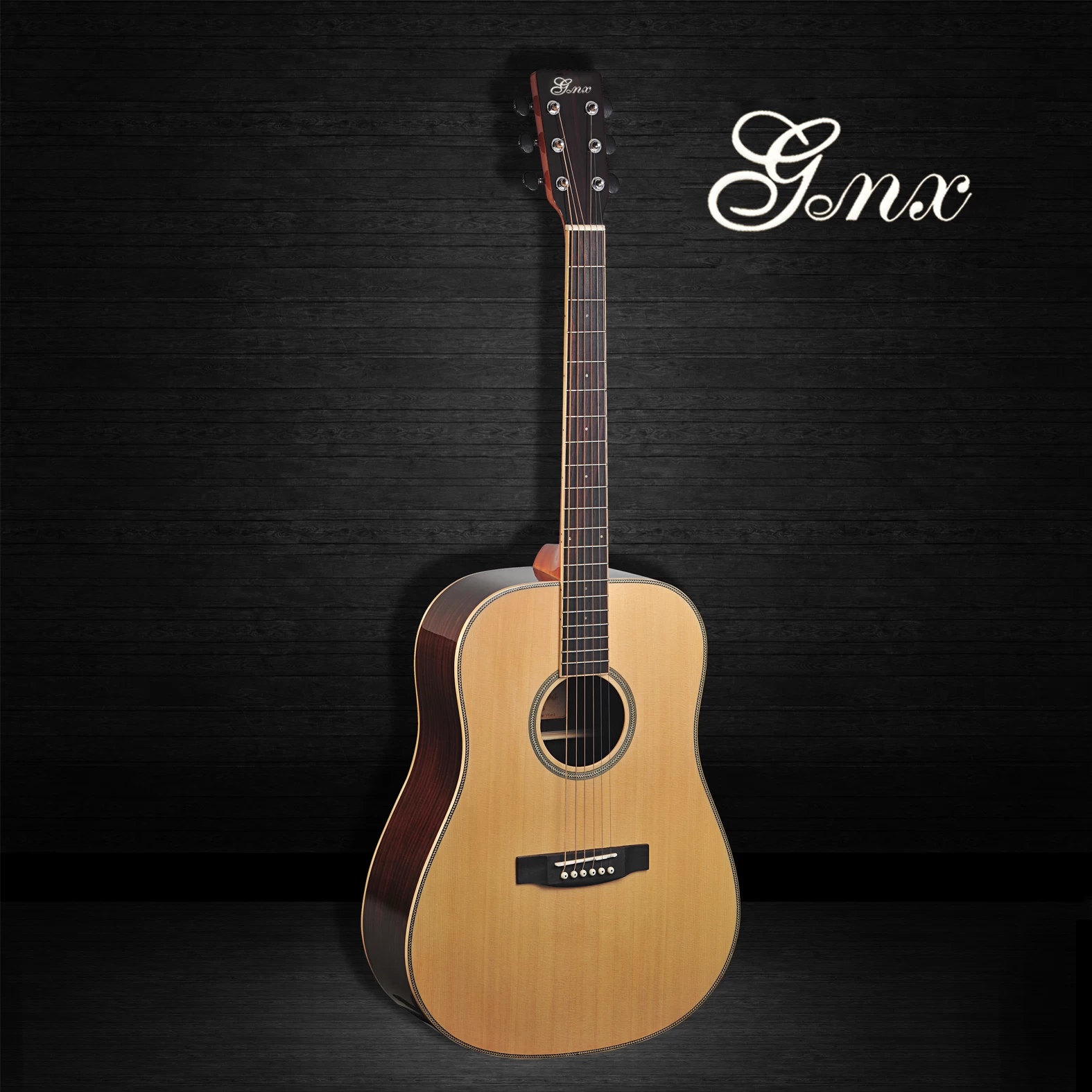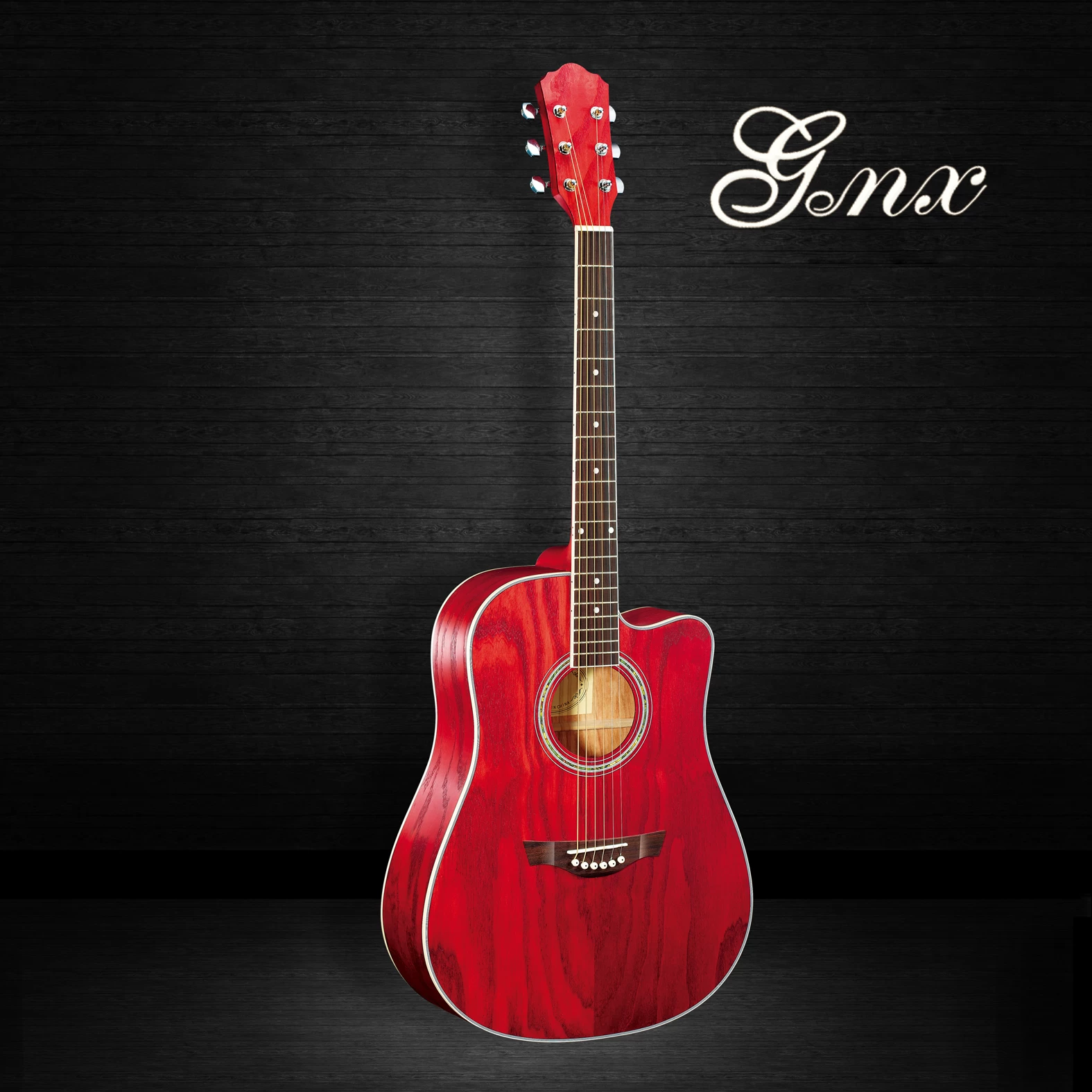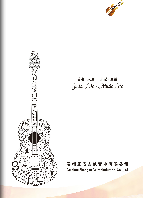Acoustic Guitar Neck Shape
2018-05-23 14:02:01
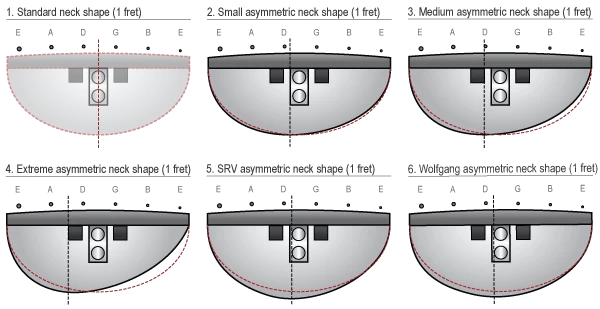
There are some guitars with quite round and wide shapes and others that are more low-profile. The overall size of the neck will depend on both the neck width (as discussed above) and the shape.
The neck depth (aka height of the neck) also tapers like the width does. It’s higher (thicker) towards the body end of the guitar and tapers towards the headstock.
The following are some of the most common neck shapes from two of the bigger acoustic guitar manufacturers. Most guitar neck shapes will be similar to these shapes.
Martin Neck Shapes
All heights here don’t include the thickness of the fingerboard.
Low Oval: This neck shape has a bit of an oval shape to it. It’s also a low profile neck – as the name would suggest.
Height at nut end: .580” (14.7mm)
Height at 10th fret: .667” (16.9mm)
Modified Low Oval: This is virtually the same in terms of the neck but the difference is that the fingerboard has a different curve in it.
Height at nut end: .580” (14.7mm)
Height at 10th fret: .667” (16.9mm)
Modified V: This has a subtle V shape in it. It’s not as low profile as the oval shapes.
Height at nut end: .630” (16mm)
Height at 10th fret: .757” (19.2mm)
Classic: The classic shape is a rounder shape. It is also the thickest of the necks as you go down. Also because of the round shape there is more material in this neck. If you check out the link below you can learn about height 2. The second height is essentially taken from 0.5” to the left and right of the center of the neck. The height 2’s for the classic are higher than that of the Modified V.
Height at nut end: .622” (15.8mm)
Height at 10th fret: .780” (19.8mm)
Low Profile: The Low Profile neck has a shape similar to the classic shape but not quite as rounded and, as the name suggests not as thick. It is thicker at the 1st fret than the low oval but it’s the thinnest of the necks at the 10th fret (apart from the performing artist). It doesn’t taper as much as the others but tapers more than the Performing Artist.
Height at nut end: .596” (15.1mm)
Height at 10th fret: .646” (16.4mm)
Performing Artist: The performing artist neck has very little taper from 1st fret to 10th fret. That is to say that the height of the neck doesn’t change much compared to the other neck types. The shape is part way between the Low Profile and the Low Oval. The Performing Artist shape also has the fingerboard “shaping into the curve” like the Modified Low Oval.
Height at nut end: .602” (15.3mm)
Height at 10th fret: .640” (16.3mm)
Full Thickness: This neck shape is a very rounded shape making this the bulkiest of the necks in this list. It has the tallest height at the nut but it doesn’t taper out as much as the classic shape.
Height at nut end: .650” (16.5mm)
Height at 10th fret: .766” (19.5mm)
>>You can see more about Martin’s shapes and widths here
Taylor Neck Shapes
Taylor’s neck heights here include the fingerboard so it’s hard to make comparisons. Martin Fingerboards are usually 0.225” (5.7mm) thick so you could work it out from that.
Standard: There isn’t much taper going on in this neck. There’s less than 1mm between the thickness at the 1st fret and the thickness at the 9th fret.
Height at nut end: .840” (21.3mm)
Height at 9th fret: .868” (22.1mm)
Note also that Taylor are measuring at the 9th fret and Martin measure at the 10th fret.
Slim: The slim neck is the slimmer version of the standard. Notice again how there’s less taper compared to Martin’s necks.
Height at nut end: .790” (20.1mm)
Height at 9th fret: .831” (21.1mm)
V: Again notice the only very subtle taper. In terms of shape it is more of a V shape than the standard and slim necks, as the name would suggest.
Height at nut end: .835” (21.2mm)
Height at 9th fret: .867” (22.0mm)
Thanks for Reading
I hope you now know more about acoustic guitar neck sizes and shapes.





